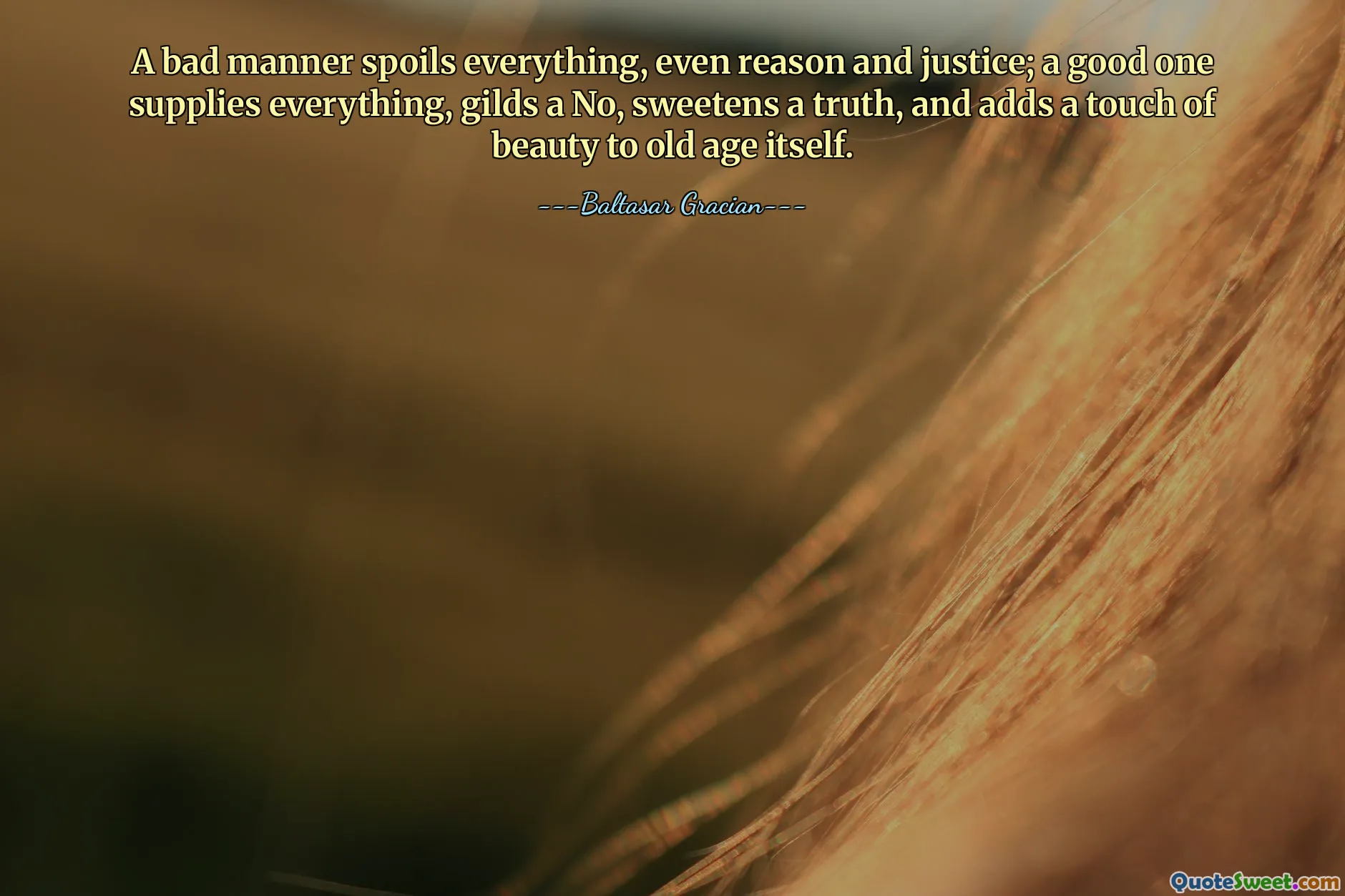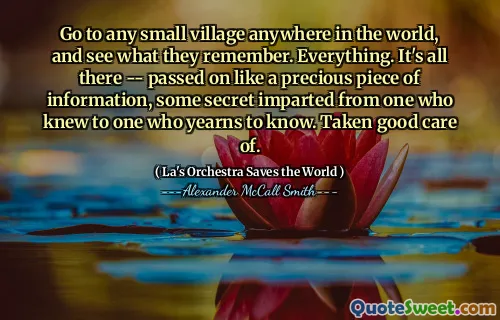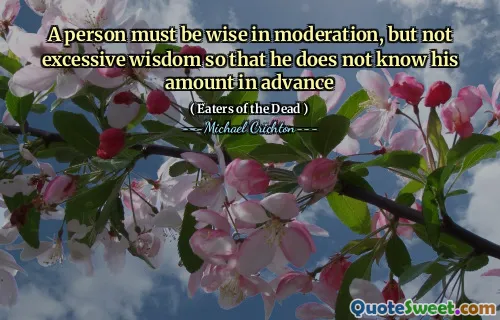
A bad manner spoils everything, even reason and justice; a good one supplies everything, gilds a No, sweetens a truth, and adds a touch of beauty to old age itself.
Throughout our lives, the manner in which we present ourselves and interact with others profoundly influences the outcomes we experience. The quote emphasizes that good manners are not merely superficial niceties but foundational elements that enhance every aspect of our character and interactions. When we exhibit bad manners, even our logical reasoning and sense of justice can be undermined, as others may dismiss or mistrust our intentions, much like a stain that corrupts a pure fabric. Conversely, good manners act like a restorative glow—making difficult truths more palatable, transforming rejection into acceptance, and adding a layer of grace to aging and wisdom.
This perspective highlights the subtle power of civility and kindness, suggesting that manners can be a form of moral art that elevates human connections. For instance, softening a "No" with tact can preserve relationships and open pathways for future cooperation. Similarly, presenting truths gently fosters understanding rather than defensiveness, leading to more meaningful discourse. As we age, these courtesies become even more valuable—they not only reflect our inner morality but also influence how society perceives us in our later years. The implication is that cultivating good manners is an art worth mastering, as it enriches our lives and enhances the beauty of our human experience. Ultimately, this quote reminds us that manners are not superficial social constructs but essential tools for creating harmony, respect, and aesthetic harmony amidst life's inevitable challenges.











